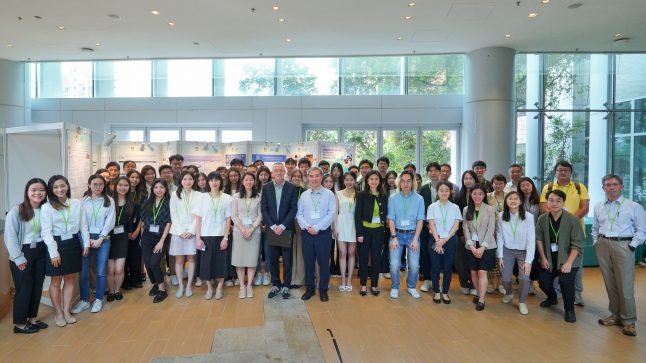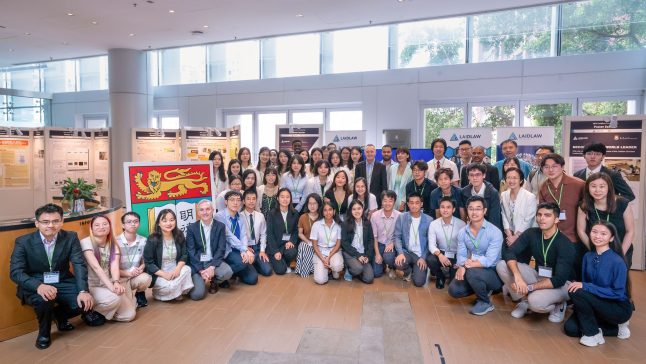
Dr. Cecilia Chan presented a workshop entitled “Design of CLOs, PLOs and Mapped Assessments” in collaboration with Prof. Pauline Chiu, the Acting Dean for the Faculty of Science (also the Associate Dean for Teaching and Learning). The lunchtime, interactive workshop took place on Monday, 29th February, 2016 and attracted over 70 HKU colleagues and students across disciplines.
Cecilia gave a brief overview of the curriculum reform in Hong Kong (2012), including the introduction of the common core curriculum, Outcomes Based Approach to Student Learning (OBASL) and whole-person education at HKU. All programs within HKU has to declare their Course Learning Outcomes (CLOs), Program’s Learning Outcomes (PLOs) to students. Leading by example, Cecilia presented the workshop’s four learning outcomes:
1. Apply the concepts of outcomes-based approach to student learning (OBASL)
2. Identify and write learning outcomes in your course using appropriate verbs and the Bloom’s taxonomy
3. Align your course with the programme outcomes and HKU aims
4. Justify the evidence for student learning in your course/programme

As a form of formative assessment, casino chips were awarded to attendees who participated by answering, commenting or asking questions during the workshop! This activity motivated much discussion and smiles during the workshop.
Aligned teaching and assessment activities with learning outcomes are critical to student learning.
Cecilia provided the rationale behind OBASL which is to help students better understand what they are expected to achieve, how they should go about achieving and how that achievement should be assessed. Learning outcomes should be seen as a contractual obligations to our students and should be written from the perspectives of the students.

Next, Cecilia presented an example of OBASL based on a driving course and discussed the practice of designing observable and measurable outcomes using Bloom’s taxonomy. In general, each step of Bloom’s taxonomy requires a greater depth of learning. Cecilia stressed that higher level of learning domains are not exclusive to senior students and could be appropriate for Year 1 students if it is the required skill level for the intended learning outcomes. The workshop attendees were encouraged to write learning outcomes, teaching activities and assessment methods using verbs that correspond to the learning domains of the Bloom’s taxonomy. Examples were shared amongst the attendees followed by discussions on the challenges when designing learning outcomes suitable to skill level of Year 1 undergraduate students.

The University has decided on a set of educational aims which also constituted as learning outcomes. Besides disciplinary knowledge, the remaining 5 education aims of HKU are focused on students’ generic skills competency. Attendees were invited to share their perspective on whether their current programmes have sufficiently covered all the HKU educational aims and some of the potential barriers. This generated a lively discussions and comments on whom should be responsible to ensure the education aims are achieved and the challenges on the assessments and the accreditation process of generic skills competency. Some examples of matrix mapping with CLOs with PLOs were presented as they are important evidence of students learning and demonstrate the alignment between CLOs with PLOs.

In closing, Dr. Chan reiterated CLOs, PLOs and HKU education aims are our contractual obligations to our students. Whilst there are challenges and issues we may face when designing CLOs and PLOs, it is essential to student-centred learning. Cecilia thanked all the attendees in particular Prof. Chiu for her contribution to the workshop and the Faculty to sponsor lunch. Last but not least, Cecilia distributed prizes for the attendees with more than 10 casino chips.








